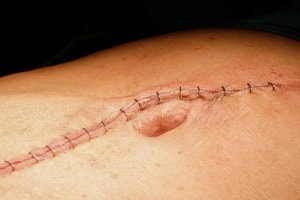
On March 8, 2019, the U.S. Food and Drug Administration published a release regarding the risks associated with surgical staplers and implantable staples. The release states that the FDA has become aware of rising numbers of medical device reports regarding these two devices and that the agency sent communication to health care providers to help […]

Risks with surgical staplers
On March 8, 2019, the U.S. Food and Drug Administration published a release regarding the risks associated with surgical staplers and implantable staples. The release states that the FDA has become aware of rising numbers of medical device reports regarding these two devices and that the agency sent communication to health care providers to help them reduce risks during patient procedures.
Surgical staplers and implantable staples are considered different devices and are regulated differently by the FDA. Staplers are characterized as Class I medical devices, which means that stapler manufacturers do not have to submit premarket documentation to the FDA. Staples, however, are characterized as Class II medical devices that do require premarket submissions to the FDA.
The FDA has released updated information about reporting on the devices. However, the difference in the two devices, combined with their similar names, could be potentially leading to distorted reporting. For instance, patients, providers, and the manufacturers might be classifying reports under staples, when issues were also present with — or solely related to — staplers.
Surgeons use staplers and staples during medical procedures to replace standard sutures and assist in removing or cutting through organs and tissue. They are commonly used in thoracic, gastrointestinal, and gynecological procedures, among other types of surgeries, and the staples can be placed externally or internally. The FDA has been in the process of assessing medical device reports it has received regarding both staplers and staples, and it has found a growing trend of reported complications from both devices.
Between January 1, 2011, and March 31, 2018, the FDA received 41,000 separate medical device reports regarding surgical staplers and internal-use staples, according to the agency’s public release. These reports included 32,000 cases of malfunctioning staplers or staples and 9,000 cases of serious injury resulting from a stapler or staple complication. In 366 reports, the stapler or staple complications resulted in patient death.
The medical device reports for the staplers and staples included documentation of staple malformation, opening of stapled sites, difficulty firing or misfiring staplers, stapler failure to fire, and incorrect staple size or application, among other issues. The described issues led to prolonged procedures, additional surgeries for patients, potential bleeding events, tissue or organ tearing, sepsis, cancer recurrence, and death, that’s why we have Surgical Staples Misfiring and Implantable Staples Malformation Attorney Lawsuit.
In its release, the FDA indicated that it had delivered communication to health care providers who use surgical staplers and implantable staples, altering them about the increased reporting incidence and reminding them to review labeling instructions when choosing the devices for their patients. The FDA also said that surgeons should use alternatives for some patients, including those with a history of bleeding events and patients with swollen or necrotic tissue.
The FDA added that, in light of its analysis on medical device reporting for the devices, the agency intended to create new guidance addressing changes to the labeling of surgical staplers and implantable staples. The new labeling should help health care providers understand the risks of the devices and how they can mitigate the risks for their patients. The FDA also said it planned to organize a meeting of the Medical Devices Advisory Committee to discuss whether the current process for market of surgical staplers should be changed. Reclassification of the staplers from Class I to Class II will be among the topics discussed.
The FDA said it remained dedicated to closely monitoring adverse reporting regarding surgical staplers and implantable staples, and that it would alert the public if it discovered additional significant information about the devices.


